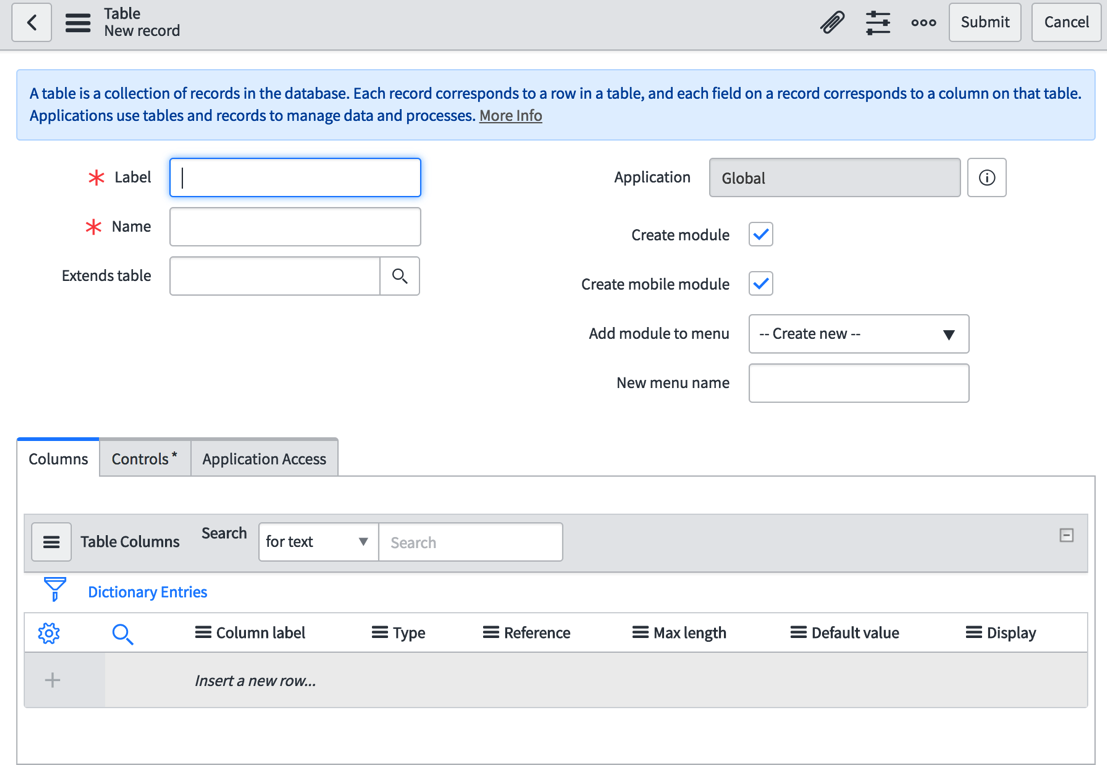Creating a table
Let us now create a custom table using the Tables & Columns module. There are multiple ways to create a new table. Either open the Tables module and click on the Newbutton on the top, or open the Tables & Columns module and click on the Create Table button in the top section, as shown in the following screenshot:

You will be presented with a New record form for the Table. To be clear, we are inserting a new record, using the following form, into a system-defined (out-of-the-box) table labeled Table (with the system name sys_db_object) to create a new table in our instance:

Let us populate the form fields with the following values to create our first custom table:
- In the
Labelfield, enter the label we want to give to our new table-that is,POS Location. - The
Namefield will be automatically populated for you when enter a value in theLabelfield and focus out of it. Note that theu_prefix will be added to the system name of your table. This is useful for distinguishing...

























































